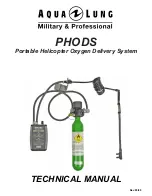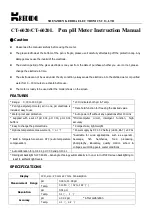
Proline Prosonic Flow 93C FOUNDATION Fieldbus
Commissioning
Hauser
53
6.5
Adjustment
All measuring devices are calibrated with state-of-the-art technology. The zero point obtained in
this way is printed on the nameplate.
Calibration takes place under reference operating conditions
Consequently, the zero point adjustment is generally
not
necessary!
Experience shows that the zero point adjustment is advisable only in special cases:
• To achieve highest measuring accuracy also with very small flow rates.
• Under extreme process or operating conditions (e.g. very high process temperatures or very high
viscosity fluids).
Preconditions for a zero point adjustment
Note the following before you perform a zero point adjustment:
• A zero point adjustment can be performed only with fluids that have no gas or solid contents.
• Zero point adjustment is performed with the measuring tubes completely filled and at zero flow
(v = 0 m/s). This can be achieved, for example, with shutoff valves upstream and/or downstream
of the sensor or by using existing valves and gates.
– Standard operation
→
Valves 1 and 2 open
– Zero point adjustment
with
pump pressure
→
Valve 1 open / valve 2 closed
– Zero point adjustment
without
pump pressure
→
Valve 1 closed / valve 2 open
A0008769
Fig. 31:
Zero point adjustment and shutoff valves
1
Shutoff valve upstream of Prosonic Flow C
2
Shutoff valve downstream of Prosonic Flow C
a
Sensor cable for channel 1
b
Sensor cable for channel 2
"
Caution!
• If the fluid is very difficult to measure (e.g. containing entrained solids or gas) it may prove
impossible to obtain a stable zero point despite repeated zero point adjustments. In instances of
this nature, please contact your Hauser service center.
• You can view the currently valid zero point value using the ZERO POINT function (see the
"Description of Device Functions" manual).
1
2
a
b
















































